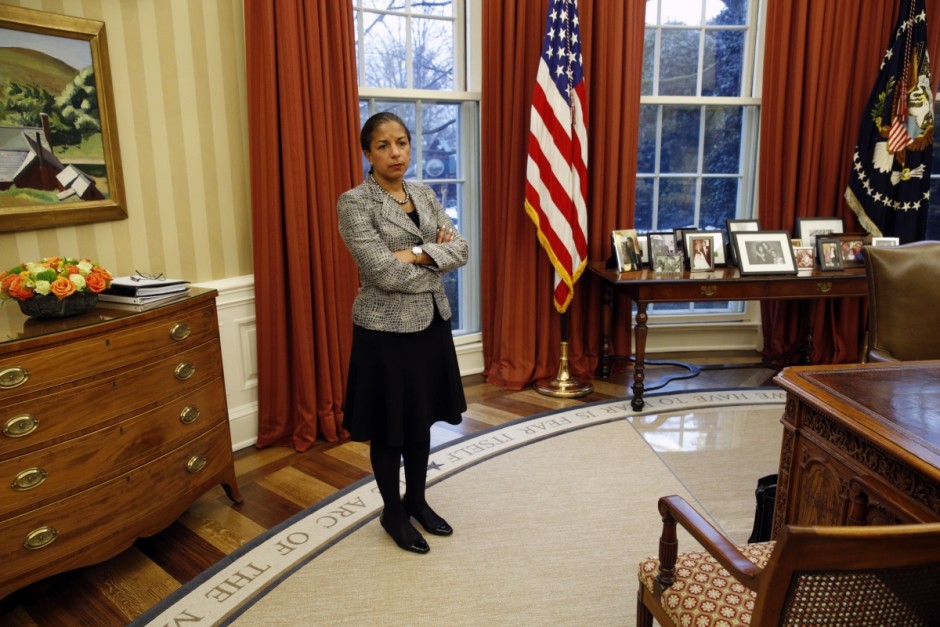Susan Rice, President Barack Obama’s national security advisor, put it bluntly.
“We look to the next Israeli government, and the Palestinian Authority, to demonstrate — through policies and actions — a genuine commitment to a two-state solution,” she said in April, shortly after Benjamin Netanyahu won reelection as Israel’s prime minister.
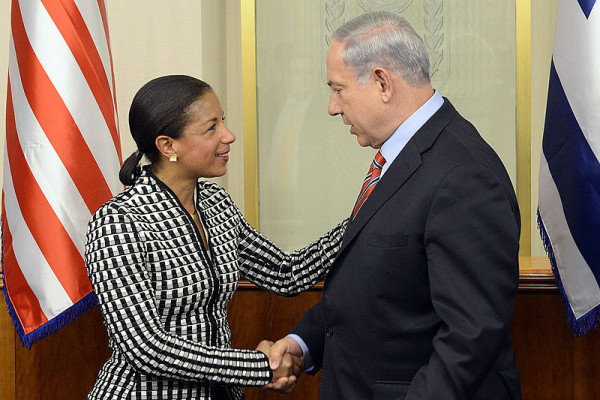
Wendy Sherman, the U.S. undersecretary of state for political affairs, had a similar message for Israel.
“We will be watching very closely to see what happens after a new government is formed on this issue of working towards two states living side by side in peace and security,” she said. “If the new Israeli government is seen as stepping back from its commitment to a two-state solution — something that a vast majority of American Jews support — that makes our jobs in the international arena a lot tougher.”
Rice and Sherman made their respective comments in response to Netanyahu’s categorical rejection of Palestinian statehood. He dropped that bombshell during the election campaign in March, thereby disavowing his previous endorsement of a demilitarized Palestinian state. Not surprisingly, Netanyahu’s retraction caused an uproar in Israel and abroad.
Chastened by the backlash, Netanyahu backtracked, saying he remains supportive of a “sustainable, peaceful two-state solution.”
Since the formation of his right-wing government on May 15, Netanyahu has elaborated on this theme. “We will continue to promote a diplomatic settlement,” he said. “I don’t support a one-state solution. I support the vision of two states for two peoples.”
Despite these assurances, Israel continues to create “facts on the ground,” which has been the case since the 1967 Six Day War. Israel is continually expanding Jewish settlements in the West Bank, which would constitute the core of a future Palestinian state. As critics correctly point out, settlements foreclose the possibility of a contiguous and viable Palestinian state, which is precisely Netanyahu’s objective.
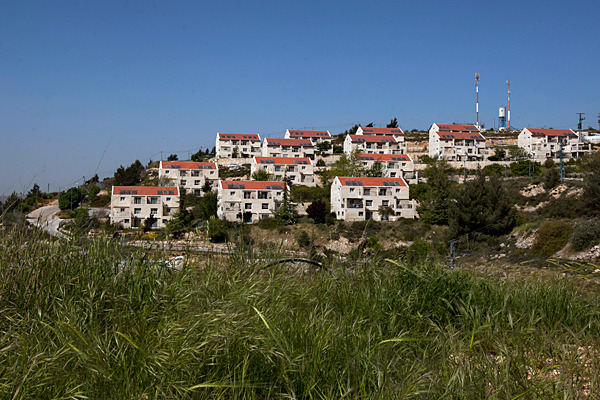
Last month, Netanyahu authorized the immediate construction of 300 housing units in Beit El, a settlement near Ramallah, the de facto capital of the Palestinian Authority. In January of this year, in a bid to win over right-wing voters ahead of the March 17 general election, Israel announced that 450 new units would be built in Kiryat Arba, near the Palestinian town of Hebron, and in settlements relatively close to the old Green Line.
Apart from strengthening settlements, Netanyahu has made a string of high-level appointments that sharply call into question his sincerity regarding Palestinian statehood and prove the adage that actions speak louder than words.
Three months ago, he placed Interior Minister Silvan Shalom in charge of peace talks, which broke down last year after nine months of on-again, off-again negotiations. Shalom is a staunch opponent of Palestinian statehood and an outspoken supporter of the settlement project in the West Bank. As he told Likud Party leaders in 2012, “We are all against a Palestinian state, there is no question about it.”
Shalom’s antipathy to Palestinian statehood is fully in accordance with Likud doctrine and policy, which is officially antagonistic to the concept.
Netanyahu has also appointed Tzipi Hotovely as deputy foreign minister, Dore Gold as director-general of the Foreign Ministry and, most recently, Danny Danon as ambassador to the United Nations. The trio are vocal opponents of a two-state solution.
Danon’s appointment, announced several days ago, indicates that Netanyahu is no longer interested in fudging his views to mollify the United States or European partners.
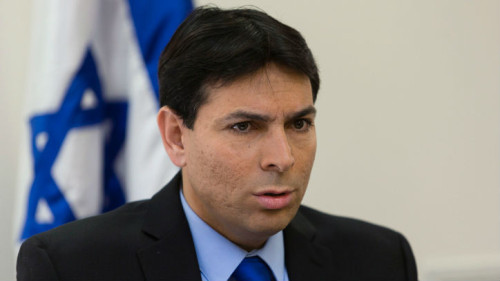
Formerly deputy defence minister and science minister, Danon believes that Israel erred in not having annexed the West Bank right after the Six Day War. Lately, he has called for the annexation of Area C, which comprises 60 percent of the West Bank but contains only four percent of its Palestinian population. Under his proposal, the Palestinians of the West Bank would be permitted to exercise autonomy only in their major cities.
Zionist Union leader Isaac Herzog has described the Danon appointment as a “cynical” ploy driven by “petty politics.” Danon, the head of Likud’s Central Committee, is one of Netanyahu’s rivals. Netanyahu, therefore, was eager to “exile” him to New York City. Their rivalries notwithstanding, Netanyahu and Danon are broadly in agreement on the Palestinian file, holding the view that conflict management is preferable to conflict resolution.
In this respect, Netanyahu concurs with Defence Minister Moshe Yaalon, who recently dismissed the notion that a Palestinian state in the West Bank should be established in the near future. “I do not see a stable settlement during the period of my life, and I plan to live a bit more,” said Yaalon, who’s 64.
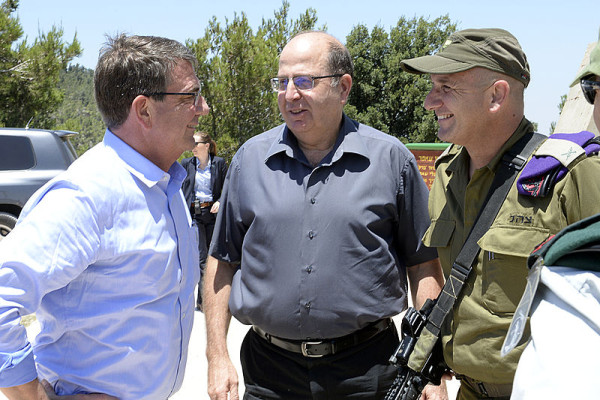
Yaalon, the former chief of staff of the Israeli armed forces, favors “a realistic modus vivendi” with the Palestinians. He thinks that “impossible goals,” such as the establishment of a Palestinian state, would bring instability.
According to reports, Netanyahu initially supported efforts by Shimon Peres, the then president, to reach a framework agreement with Palestinian Authority President Mahmoud Abbas in 2011.
They reportedly reached an informal understanding that could have been an historic breakthrough in the annals of the Arab-Israeli conflict. A demilitarized Palestinian state would be created on the basis of the 1967 lines and equal land swaps. Jerusalem would be the shared and open capital of both states. The Palestinian refugee problem would be solved by means of a mutually agreed solution
Netanyahu eventually rejected the plan. His acceptance of it would have been out of character, since he scoffs at all notions of a peace agreement based on the pre-1967 frontiers.
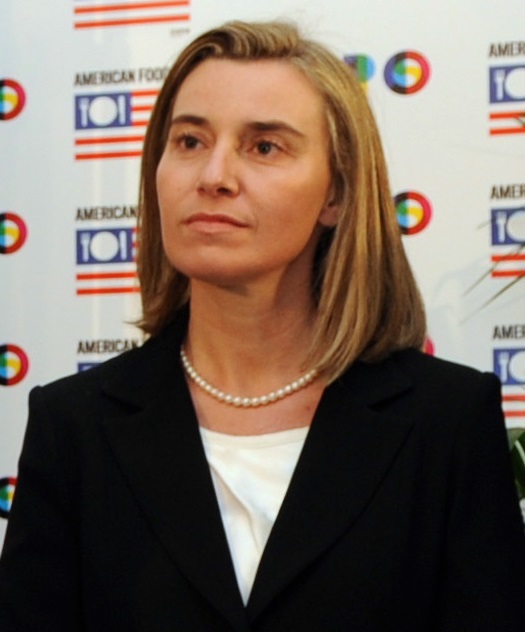
Nonetheless, he told the European Union’s chief foreign policy official, Frederica Moghereni, that Israel is prepared to resume talks with the Palestinians and define the boundaries of the West Bank settlement blocs that Israel intends to keep.
Since the swearing in of the new Israeli government, Israeli and Palestinian officials have met to gauge the prospects of restarting the peace process. Late last month, Shalom sat down with his Palestinian counterpart, Saeb Erekat, in Amman to discuss the possibility of reaching “understandings and agreements.”
They did not bridge the gap in their respective positions, leaving the two sides still torn by irreconcilable differences.
Abbas wants Israel to agree to two conditions before negotiations can be restarted — a full settlement freeze in the West Bank and East Jerusalem and a delineation of final borders. He claims he will never recognize Israel as a Jewish state, one of Netanyahu’s key demands.

Since Netanyahu is not prepared to accept Abbas’ conditions, the Palestinians have concluded that direct talks with Israel are a non-starter and that their quest for statehood should be channelled through global organizations like the International Criminal Court.
In the past year, in defiance of Israel and the United States, the Palestinians have joined some 40 international conventions and treaties, building on the observer status they attained at the United Nations General Assembly in 2012 by an overwhelming margin.
Israel regards the Palestinian strategy as counter-productive and insists that the Palestinians can achieve statehood only through direct negotiations.
The Middle East Quartet — the United States, the European Union, the United Nations and Russia — has called for a speedy resumption of talks, which collapsed in April 2014 despite strenuous efforts by U.S. Secretary of State John Kerry to broker a deal.
Until recently, France tried to lobby support for a United Nations resolution under which Israel and the Palestinians would abide by an 18-month timetable to reach a two-state solution. When Netanyahu expressed opposition to the French “diktat,” it died on the drawing board. Of late, French Foreign Minister Laurent Fabius has been trying to sell the idea of jumpstarting negotiations through a new international group.
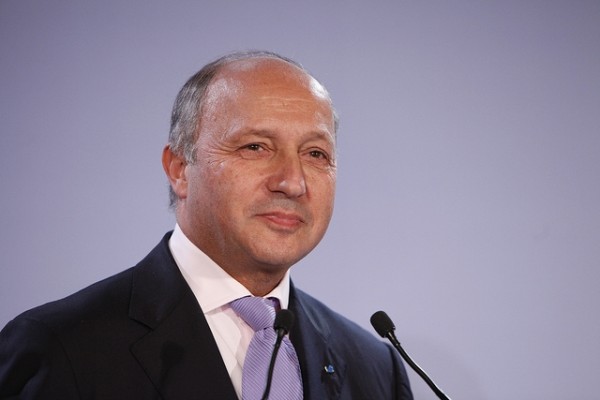
It seems clear that Israel’s isolation will grow exponentially if peace talks do not resume in earnest. In a sign of the times, the Czech Republic — one of Israel’s best friends in Europe — warned Israel through its foreign minister, Lubomir Zaoralek, that it would be hard-pressed to maintain its pro-Israel stance unless the Israeli government works sincerely for peace.
Speaking in the same spirit, Israeli opposition leader Isaac Herzog issued a bleak warning, predicting that Israel will morph into a binational state unless it reaches a durable peace accord with the Palestinians. As he put it, “In about a decade, the Arabs between Jordan and the Mediterranean will be a majority and the Jews a minority. The Jewish national home will become the Palestinian national home. We will be, again, for the first time since 1948, a Jewish minority among an increasing Arab majority.”
The alarm has been sounded.
Contrary to what Netanyahu and company think, the complacent status quo endangers Israel’s status as a democratic Jewish state and sows the field for further bloodshed. So the question remains: Is Netanyahu really prepared to break with rigid Likud dogma and give peace a real chance?
It’s very doubtful.
The Obama administration should not be under the illusion that a tiger can shed its stripes. Netanyahu is a canny politician with an instinct for survival, but he’s definitely not a peacemaker.
